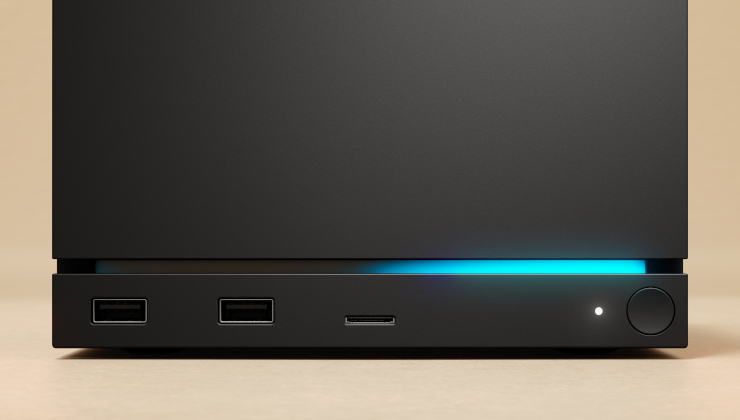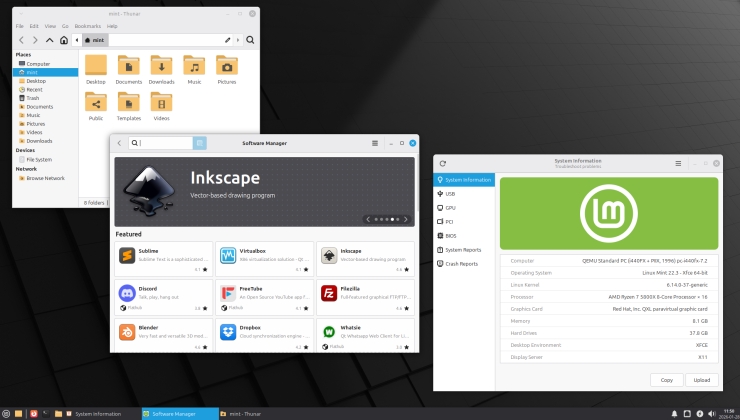Today, NVIDIA officially lifted the lid on two new GPUs with the GeForce GTX 1660 SUPER and the GeForce 1650 SUPER. Both of them will continue using the Turing architecture.
Aimed at the money conscious gamer, with NVIDIA aiming their sights at the entry-level market to give you a reasonable 1080p experience. That's still the most popular resolution with gamers, as shown by Valve's survey and our own.
Specifications
- Base Clock: 1530 - Boost Clock: 1785
- Memory: 6GB GDDR6
- Memory Speed: 14 Gbps
- TDP: 125w
- Base clock: 1530 - Boost Clock: 1725
- Memory: 4GB GDDR6
- Memory Speed: 12 Gbps
- TDP: 100w
The GeForce GTX 1660 SUPER will be available from today starting at $229, while the GeForce GTX 1650 SUPER will be available from November 22 but pricing hasn't been announced yet.
I would expect NVIDIA to keep up their good Linux support so I imagine a driver update will land sometime soon with support for the GTX 1660 SUPER. If that releases today, I will add a link in here.
Update: Turns out the recent beta release of the 440.26 Linux driver actually included GTX 1660 SUPER support an NVIDIA rep told me today. They've updated the release notes on it to now say so.
You'd think a higher number is downright better - but it just isn't.
I have a GTX 1070, and that has the same clock speed, more memory (albeit GDDR5, though I doubt that's a significant difference) and a slightly higher TDP.
I'd say a GTX 1660 according to these stats is maybe minimally faster with slightly less power consumption, but with less memory. And it seems to be cheaper, though they usually end up more expensive in practice due to demand.
While an RTX (the G is an R now...) 2080 is quite clearly superior to both of them.
And that's just NVIDIA.
Last edited by TheSHEEEP on 29 Oct 2019 at 2:42 pm UTC
Quoting: TheSHEEEPThese graphics cards numbers are just confusing, at least to people like me, who upgrade their rig maybe once every 2-3 years, and then just care about "is this better? yes/no".The rule of thumb I internalised is:
You'd think a higher number is downright better - but it just isn't.
* First digits but last two (9 of 970, 10 of 1060, 16 of 1650) is the generation.
* Last two digits is the class inside the generation (the higher, the better).
I don't know if it's still the case, but I used to compare the speed of one generation newer, one class below, like 970 has about the potential of 1060.
Don't believe me without checking actual performance benchmarks.
Last edited by Eike on 29 Oct 2019 at 4:54 pm UTC
Quoting: EikeThe rule f thumb I internalised is:Yeah pretty much nailed. except the 16 vs 20 differences are quite strange these days. 20 has RTX and 16 doesnt, but 1660 Super and 2060 in theory will be quite similar in terms of perf.
* First digits but last two (9 of 970, 10 of 1060, 16 of 1650) is the generation.
* Last two digits is the class inside the generation (the higher, the better).
I don't know if it's still the case, but I used to compare the speed of one generation newer, one class below, like 970 has about the potential of 1060.
Don't believe me without checking actual performance benchmarks.
But other than that yeah, usually this applies that previous generation xx70 is about same perf as next generation xx60 and so on. Thats roughly only though, some Games take advantage of new GPU features more and some older games might be better on older generation higher end GPU.
Same goes to AMD minus the Navi series which numbering is a bit different but still first number is the generation and second is the power of that generation.
Quoting: TheSHEEEPThese graphics cards numbers are just confusing, at least to people like me, who upgrade their rig maybe once every 2-3 years, and then just care about "is this better? yes/no".With all these naming schemes, there is no point to buy anything based on numbers and names. Wait for benchmarks :) AMD naming schemes aren't any less confusing.
You'd think a higher number is downright better - but it just isn't.
Last edited by Shmerl on 29 Oct 2019 at 5:04 pm UTC
Quoting: EikeThe performance increase from the 9 to 10 series was quite significant. A 1060 is actually closer in performance to a 980 with the 980 being around 3 to 5% faster in most use cases than a 1060. The GTX 16 series using Turing processors, but without the ray tracing co-processor found in the RTX line. The performance difference between 10 and 16 series isn't that large. In fact, a GTX 1060 Ti and a GTX 1660 Ti have virtually identical benchmarks. However, if you move to an RTX 2060 there's a nice bump. This is due to the GTX 16 series cards having fewer cuda cores (think miniature processors dedicated to the kind of math that GPUs process). In essence, your statement that the numbers are confusing is quite right. In reality it's probably even more complicated than you'd realized. The marketing materials don't help for people who aren't well versed in this sort of thing.Quoting: TheSHEEEPThese graphics cards numbers are just confusing, at least to people like me, who upgrade their rig maybe once every 2-3 years, and then just care about "is this better? yes/no".The rule of thumb I internalised is:
You'd think a higher number is downright better - but it just isn't.
* First digits but last two (9 of 970, 10 of 1060, 16 of 1650) is the generation.
* Last two digits is the class inside the generation (the higher, the better).
I don't know if it's still the case, but I used to compare the speed of one generation newer, one class below, like 970 has about the potential of 1060.
Don't believe me without checking actual performance benchmarks.
Quoting: neuronmage... In fact, a GTX 1060 Ti and a GTX 1660 Ti have virtually identical benchmarks...GTX 1060 ti... Where?! It exists?! First time I hear anything about this one. ;)
But to be honest if you want a decent upgrade to your 1070 don't buy anything below the RTX 2070 Super.
Last edited by gojul on 30 Oct 2019 at 7:52 am UTC
Quoting: BrazilianGamerI wonder if Linus still would've told Nvidia to Fu*k themselves nowadays. They've changed a lot from how they treated Linux back in the day. DunnoHow exactly? They mostly treat Linux the same way today. I.e. refuse to upstream their kernel driver, refuse to open things as well. And of course still hinder Nouveau reclocking. Nothing of that changed.
Last edited by Shmerl on 31 Oct 2019 at 8:52 pm UTC










 How to setup OpenMW for modern Morrowind on Linux / SteamOS and Steam Deck
How to setup OpenMW for modern Morrowind on Linux / SteamOS and Steam Deck How to install Hollow Knight: Silksong mods on Linux, SteamOS and Steam Deck
How to install Hollow Knight: Silksong mods on Linux, SteamOS and Steam Deck